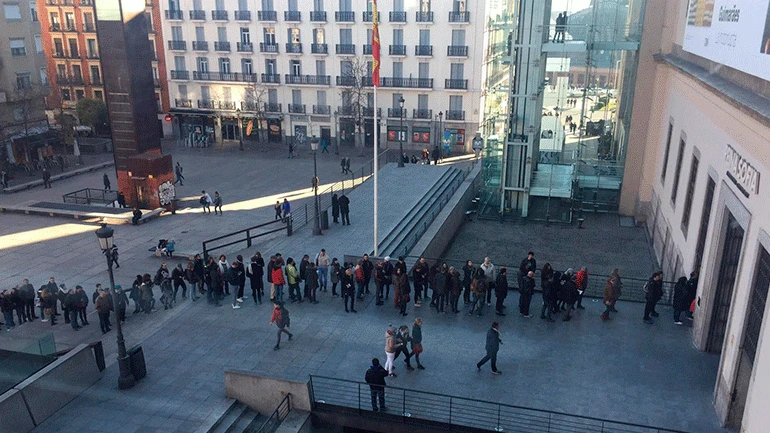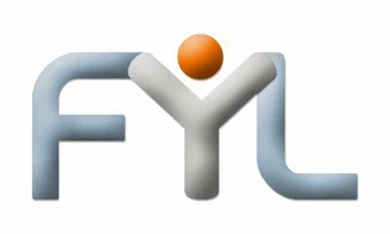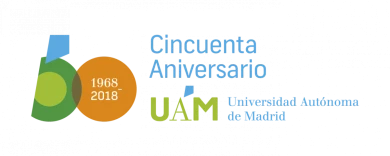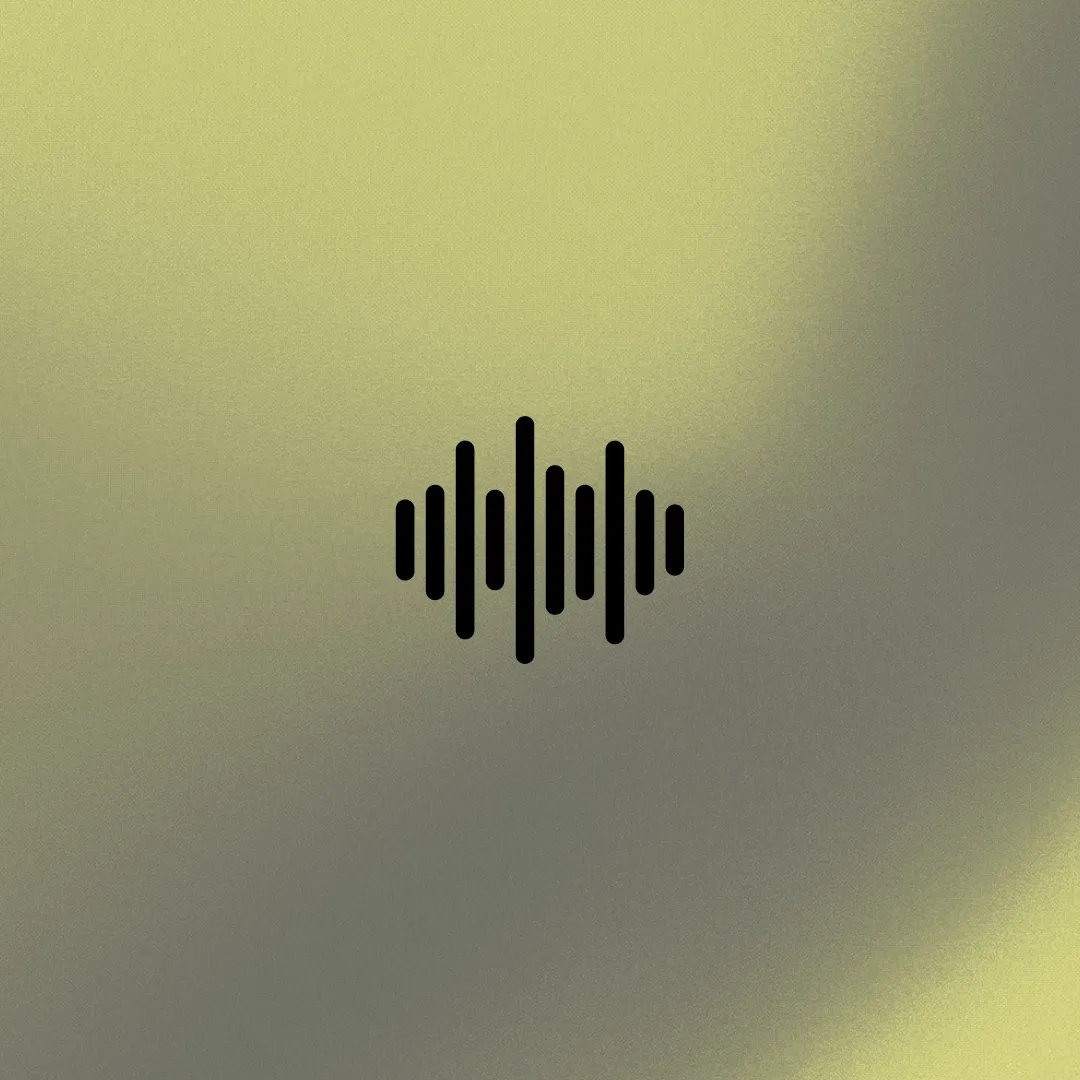-
Internacional Conference . Day 1
Thursday, 29 November
MORNING
9:30am – 10:00am
Welcome10:00am – 11:00am
Keynote: Juan Martín Prada, Art and Spectators in the Social Media Age.
This lecture looks at the transformations that new connectivity technologies — particularly social media – have engendered in the relationships between artistic practices and their audiences over the last decade.11:00am – 11:30am
Coffee Break11:30am – 1:30pm
Reception, Participation and Appropriation, moderated by Laura Caballero. Lectures by:- Ivana Hanacek. Strategies for the Democratization of Culture in Socialist Yugoslavia: Artistic Work in the National Front
- Catalina Imizcoz. ramona: Looping the Mechanisms of Production and Reception
- André Rui Graça. Audiences and Film-going in Portugal (1960-2010): Evolution of Policies, Reception Contexts and Visual Culture
- Alia Soliman. On the Popularisation of the Doppelgänger Figure in Contemporary Visual Culture
1:30pm – 5:00pm
BreakAFTERNOON
5:00pm - 6:30pm
Art (and) Mediation, moderated by Javier Fernández Vázquez. Lectures by:- Ariadna Lorenzo. The Illustrated Lecture at MoMA’s Auditorium: Developing a Space for a New Audience
- Elizabeth Stainforth y Ana Baeza Ruiz. Technologies of Public Culture: Exploring the Role of Visual Communication Technologies in Cultural Heritage Institutions
- Sonia Jiménez Hortelano y Clara Solbes Borja. Programas públicos para públicos plurales. Las estrategias de mediación en Bombas Gens Centre d’Art [Public Programmes for Diverse Audiences. Mediation Strategies in Bombas Gens Centre d’Art]
- Emily Watlington. Pretty Gross: Aestheticized Abjection in Feminist Video Art, 1996-2009
6:30pm – 7:00pm
Break7:00pm – 8:00pm
Towards a Constituent Museum. Politics and Practices of Mediation in “Our Many Europes”
Round-table discussion, with the participation of Pablo Martínez, Fran MM Cabeza de Vaca, Onur Yıldız and Adela ŽeleznikCultural institutions in general, and museums in particular, face the challenge of responding to a population that can no longer be recognised under the unified epithet ‘public’. This has occurred as much through the demographic, technological and economic transformations that have had a radical effect on the ‘Libidinal Economy’ in society as the crisis in the illustrated notion of culture as the chief articulator of the common good, in which subjects are no longer considered citizens. Rather, they are treated as consumers in the industries of leisure and the spectacle.
In this round-table discussion, spokespeople from the mediation teams of L’Internationale’s member museums will discuss the practices and relationship modes which, in their different contexts, seek to recognise subjects as constituent elements in the critical notion of the institution.
-
Internacional Conference. Day 2
Friday, 30 November
MORNING
10:00am – 11:00am
Biennials and Contemporary Publics, moderated by Desirée Vidal. Lectures by:- Eva March. Barcelona 1955: la apropiación social de la III Bienal Hispanoamericana de arte. [Barcelona 1955: The Social Appropriation of the 3rd Hispano-American Biennial of Art]
- María Dolores Barrena Delgado. Fotografía, 1968, 1969 y un grupo de amigos: el aquí y ahora del aquí y ahora [Photography, 1968, 1969 and a Group of Friends: The Here and Now from the Here and Now]
11:00am – 11:30am
Coffee Break11:30am – 1:00pm
Broadening Audiences, Expanding Channels, moderated by Alberto López Cuenca. Lectures by:- Briley Rasmussen. Broadcasting Modernity: The Museum of Modern Art’s Experiments in Television Programming
- Daniel Verdú. In Search of Wider Audiences. Strategies of Spanish Art Criticism between 1975 and 1992
- Laura Gómez Vaquero. Modos de narrar el arte contemporáneo español en el documental reciente [Modes of Narrating Spanish Contemporary Art in Recent Documentaries]
1:00pm – 4:30pm
BreakAFTERNOON
4:30pm - 5:30pm
Keynote: Lynn Spigel, Talking Heads and Video Countercultures.
This lecture explores how, since the 1960s, certain American artists have used talk shows as a space to develop artistic and political practices of counterculture.5:30pm – 6:00pm
Break6:00pm – 7:30pm
Artists and/or Wide Audiences, moderated by Laura Ramírez. Lectures by:- Katharine J. Wright. The Medium is the Media: Protest Art and the Infiltration of Postwar American Periodicals
- Andrew Cappetta. The Birth of Underground Music and the British Art School, 1960-1980
- Patrick Van Rossem. The Artist and the Worry Behind the Work. Just a Voice Amongst Many?
7:30pm – 8:00pm
Closing remarks
Wide Audiences and the Visual Arts from 1950 to the Present: Agencies, Politics and Discourses
International conference

Held on 29 Nov 2018
This international conference examines the media, narratives and practices which have sought to make contemporary visual arts accessible to wide audiences from 1950 to the present.
The development of the media (press, cinema, television, the internet), the proliferation of illustrated publications and the exponential increase in the number of exhibitions and new museums around the world has given rise to a vast array of mediums that have played a key role in configuring and disseminating narratives of contemporary art among a wide, diverse and unspecialised audience. The expansion of education and leisure- and consumerism-related activities has also led to a significant rise in the mainstream’s interest in the visual arts. Both the aims and effects of the initiatives steered towards the “popularisation” of the arts are diverse and often incompatible, ranging from the commercialisation of culture to the empowering of individuals and collectives. Consequently, the ways of approaching communication and dissemination vary according to the receivers, who are equally diverse: from political and cultural agents to consumers from the society of the spectacle and digital users.
Furthermore, it must be noted that although these receivers sometimes follow norms established by senders, they also frequently modify, misinterpret, deny or subvert them. Thus contemporary art is re-appropriated in unpredictable and unexpected ways, and counter-publics emerge. The demands on the worlds of culture and the humanities require them to have a social impact and to construct “from below”, contributing to empowerment, using new technologies wisely, and promoting freedom, democracy, equality and respect, as well as the integration of diversity. Yet there is also the need to combine critical analyses and productive reflections to elucidate the method of obtaining results.
The conference is structured around two sessions, including the presentation of communications selected via an international open call for papers, a round-table discussion and two lectures, combining to create a framework to debate and think about the problems, limitations and opportunities arising in the crossroads between the arts and wide audiences.
In collaboration with
The School of Philosophy and Letters at the Autonomous University of Madrid (UAM).
The Office of Cultural Activities of the Vice-Chancellor of Institutional Relations, Social Responsibility and Culture at the Autonomous University of Madrid (UAM).
Creative Europe Culture Programme Centro Cultural La Corrala Museo de Artes y Tradiciones Populares
Inside the framework of
The research project: “Long Exposure: the Narratives of Spanish Contemporary Art for ‘Wide Audiences’" (HAR2015-67059-P MINECO, FEDER).
The Doctoral Programme for Studies in Art, Literature and Culture at the Autonomous University of Madrid (UAM). The ACCAMC Research Group of Art, Film and Audiovisual Cultures in the Contemporary World.
The Project: “Our Many Europes. Europe’s Critical ‘90s and the Constituent Museum”, by L’Internationale, the European Confederation of Museums. L’Internationale
Convenors
Valeria Camporesi (UAM), Olga Fernández López (UAM) and Noemi de Haro García (UAM)
Scientific committee
Valeria Camporesi, Jesús Carrillo, Olga Fernández López, Noemi de Haro García (UAM) and Ana Longoni (Museo Reina Sofía)
Organised by
The Autonomous University of Madrid (UAM) and Museo Reina Sofía



Participants
Lectures:
Juan Martín Prada. A professor at the University of Cádiz, where he is in charge of the research group Contemporary Aesthetic Theories. He is also the author of the books El ver y las imágenes en el tiempo de Internet (2018) and Prácticas artísticas e Internet en la época de las redes sociales (2012), among others.
Lynn Spigel. A professor of Digital Media Culture at Northwestern University, she writes and lectures about the cultural history of film, television and digital media, with a focus on gender, technology and the relationship the media bears to daily life. She is the author of Feminist TV Criticism (2007) and Welcome to the Dreamhouse: Popular Media and Postwar Suburbs (2001), among others.
Round table:
Pablo Martínez. An educator and researcher, and currently head of Public Programmes at the Museo de Arte Contemporáneo de Barcelona (MACBA). He has worked in the sphere of education and public policy activities in the Centro de Arte Dos de Mayo and Museo Nacional Centro de Arte Reina Sofía, among others.
Fran MM Cabeza de Vaca. A member of the Museo Reina Sofía’s Education team. As an artist and teacher, he has participated in different initiatives that sit at the crossroads between education and art practices, for instance with the collective ZEMOS98 and the project Expanded Education (2012).
Onur Yıldız. With a PhD in Political Theory from the University of Essex, his lines of research take in radical theory, democratic politics, populisms and the political uses of art. He is currently head of Pubic Programmes at SALT (Istanbul).
Adela Železnik. She holds a PhD in Art History and has curated exhibitions and participated in projects related to pedagogies in contemporary art, for instance the Radical Education Collective and L’Internationale’s mediation work group. Since 1993, she has worked as head of education and public programmes at Moderna galerija, Ljubljana.
Talks:
Ana Baeza Ruiz. An associate professor at University College London and research fellow at the Victoria and Albert Museum. Her research explores the history of UK museums in the middle of the 20th century, specifically the structuring of collections and curatorial techniques in public art museums.
María Dolores Barrena Delgado. She holds a PhD in Art History and works as an exhibition curator, forming part of the Curatorial Platform of the International Photography Biennial Fotonoviembre. Since 2013 she has worked on Solar. Acción cultural Sociedad – Lugar – Arte, a cultural association which considers everyday space to be a place of research and artistic creation.
Andrew Cappetta. A doctoral candidate in Art History and assistant curator in the academic programmes at the University of Rochester’s Memorial Art Gallery. He has worked in various art institutions, such as the Museum of Modern Art and the Albright-Knox Art Gallery, and has written a number of texts on art, music and education for journals such as The Brooklyn Rail, Art & Education and Sound Effects, among others.
Laura Gómez Vaquero. A professor of Film and Art in different centres belonging to the University Camilo José Cela and the University Rey Juan Carlos. She has also been a member of the programme committee for Madrid’s International Documentary Festival, DocumentaMadrid, and is the author of a number of publications, including Las voces del cambio. La palabra en el documental durante la transición en España (2012).
Ivana Hanaček. An art historian and curator whose research centres around the conditions of socialist realism in Yugoslavian art. With an interest in the intersection between art, public space and education, she has been part of different collectives and programmes such as BLOK and the Political School for Artists.
Catalina Imizcoz. An editor, producer and researcher of contemporary art who is also an associate professor at University College London and the University of Arts London. Her research focuses on publications which have shaped exhibition studies, for instance the magazine ramona, from Argentina.
Sonia Jiménez Hortelano. With a PhD in Art History, she is currently undertaking a training and research fellowship at the Museo Nacional del Prado. She has worked as a mediator at Bombas Gens Centre d’Art, in Valencia, and has carried out internships in the museum sphere, working in centres such as the Institut Valencià d’Art Modern (IVAM) and La Nau from the University of Valencia.
Ariadna Lorenzo Sunyer. A doctoral candidate at the University of Lausanne and the University of Gerona. Her research analyses the role of artists’ conferences in the development of school art and museum programmes for art education and communication. Moreover, she has curated a wide range of exhibitions and is part of different research groups.
Eva March. With a PhD in Art History and an associate professor at Pompeu Fabra Univeristy, she has focused her research on the study of museums and collecting in Catalonia during the first 30 years of the 20th century. She is the author of Los museos de arte y arqueología de Barcelona durante la Dictadura de Primo de Rivera (2011).
Briley Rasmussen. An assistant professor and director of Museum Studies at the University of Florida. Her field of research focuses on the history of education practices in museums, and she has worked in this sphere in institutions such as the Museum of Contemporary Art, Los Angeles, and the J. Paul Getty Museum.
André Rui Graça. With a PhD in film studies from University College London and an independent advisor, he is currently a researcher in the Centre for 20th Century Interdisciplinary Studies at the University of Coimbra. His research focuses on the film market in general and the dissemination and consumption of Portuguese cinema and art in particular.
Clara Solbes Borja. An art historian with broad experience in the museum sphere, she has worked as a mediator at Bombas Gens Centre d’Art and an exhibition assistant at IVAM. She has also been part of different teams which aim to establish a gender perspective in museums, for instance “Re-readings. Museum Itineraries in Terms of Gender”.
Alia Soliman. A doctoral candidate at University College London and a cultural advisor. She has published work on female sexuality, ageing and the image of the body, in addition to the dissemination of the image in contemporary culture.
Elizabeth Stainforth. A professor at the University of Leeds whose research explores digital heritage and memory cultures. She has also worked as an associate editor for the parallax journal and has published different articles in journals such as Museum and Society.
Patrick Van Rossem. A curator, critic and researcher with a PhD in Art History and an associate professor at Utrecht University. His interests lie in the performative turn in visual arts and the relationships between artists and audiences from 1960 onwards. He is the co-author of The audience as an authorial presence in the creative act. Considering authorship and the performative turn in the 1960s and 1970s (2012).
Daniel A. Verdú Schumann. Currently a researcher at Paderborn University and associate professor at University Carlos III, Madrid. He has conducted research into Spanish art and the art world between 1960 and 1990, and is the author of diverse publications such as Crítica y pintura en los años ochenta (2007) and Alberto Solsona (2013)
Emily Watlington. As a contemporary art critic and curator, her work is centred around the study of video through affect theory, feminist theory and disability studies. She has worked in institutions such as the MIT List Visual Arts Center and has written for different magazines, including Frieze and Art Papers.
Katharine J. Wright. As an independent curator and researcher, she has worked in different art institutions such as the Metropolitan Museum of Art, the Whitney Museum of American Art and the Museum of Modern Art, New York. Specialised in post-war American art, she has a keen academic interest in alternative media, public art, photography and graphic design.
Más actividades
![Tracey Rose, The Black Sun Black Star and Moon [La luna estrella negro y negro sol], 2014.](https://recursos.museoreinasofia.es/styles/small_landscape/public/Obra/AD07091_2.jpg.webp)
On Black Study: Towards a Black Poethics of Contamination
Monday 27, Tuesday 28 and Wednesday 29 of April, 2026 – 16:00 h
The seminar On Black Study: Towards a Black Poethics of Contamination proposes Black Study as a critical and methodological practice that has emerged in and against racial capitalism, colonial modernity and institutional capture. Framed through what the invited researcher and practitioner Ishy Pryce-Parchment terms a Black poethics of contamination, the seminar considers what it might mean to think Blackness (and therefore Black Study) as contagious, diffuse and spreadable matter. To do so, it enacts a constellation of diasporic methodologies and black aesthetic practices that harbor “contamination” -ideas that travel through texts, geographies, bodies and histories- as a method and as a condition.
If Blackness enters Western modernity from the position of the Middle Passage and its afterlives, it also names a condition from which alternative modes of being, knowing and relating are continually forged. From within this errant boundarylessness, Black creative-intellectual practice unfolds as what might be called a history of touches: transmissions, residues and socialities that unsettle the fantasy of pure or self-contained knowledge.
Situated within Black radical aesthetics, Black feminist theory and diasporic poetics, the seminar traces a genealogy of Black Study not as an object of analysis but as methodological propositions that continue to shape contemporary aesthetic and political life. Against mastery as the horizon of study, the group shifts attention from what we know to how we know. It foregrounds creative Black methodological practices—fahima ife’s anindex (via Fred Moten), Katherine McKittrick’s expansive use of the footnote, citation as relational and loving labour, the aesthetics of Black miscellanea, and Christina Sharpe’s practices of annotation—as procedures that disorganise dominant regimes of knowledge. In this sense, Black Study is approached not as a discrete academic field but as a feel for knowing and knowledge: a constellation of insurgent practices—reading, gathering, listening, annotating, refusing, world-making—that operate both within and beyond the university.
The study sessions propose to experiment with form in order to embrace how ‘black people have always used interdisciplinary methodologies to explain, explore, and story the world.’ Through engagements with thinkers and practitioners such as Katherine McKittrick, C.L.R. James, Sylvia Wynter, Christina Sharpe, Fred Moten, Tina Campt, Hilton Als, John Akomfrah, fahima ife and Dionne Brand, we ask: What might it mean to study together, incompletely and without recourse to individuation? How might aesthetic practice function as a poethical intervention in the ongoing work of what Sylvia Wynter calls the practice of doing humanness?

Intergenerationality
Thursday, 9 April 2026 – 5:30pm
This series is organised by equipoMotor, a group of teenagers, young people and older people who have participated in the Museo Reina Sofía’s previous community education projects, and is structured around four themed blocks that pivot on the monstrous.
The third session gazes at film as a place from which to dismantle the idea of one sole history and one sole time. From a decolonial and queer perspective, it explores films which break the straight line of past-present-future, which mix memories, slow progress and leave space for rhythms which customarily make no room for official accounts. Here the images open cracks through which bodies, voices and affects appear, disrupting archive and questioning who narrates, and from where and for whom. The proposal is at once simple and ambitious: use film to imagine other modes of remembering, belonging and projecting futures we have not yet been able to live.

Remedios Zafra
Thursday March 19, 2026 - 19:00 h
The José Luis Brea Chair, dedicated to reflecting on the image and the epistemology of visuality in contemporary culture, opens its program with an inaugural lecture by essayist and thinker Remedios Zafra.
“That the contemporary antifeminist upsurge is constructed as an anti-intellectual drive is no coincidence; the two feed into one another. To advance a reactionary discourse that defends inequality, it is necessary to challenge gender studies and gender-equality policies, but also to devalue the very foundations of knowledge in which these have been most intensely developed over recent decades—while also undermining their institutional support: universities, art and research centers, and academic culture.
Feminism has been deeply linked to the affirmation of the most committed humanist thought. Periods of enlightenment and moments of transition toward more just social forms—sustained by education—have been when feminist demands have emerged most strongly. Awareness and achievements in equality increase when education plays a leading social role; thus, devaluing intellectual work also contributes to harming feminism, and vice versa, insofar as the bond between knowledge and feminism is not only conceptual and historical, but also intimate and political.
Today, antifeminism is used globally as the symbolic adhesive of far-right movements, in parallel with the devaluation of forms of knowledge emerging from the university and from science—mistreated by hoaxes and disinformation on social networks and through the spectacularization of life mediated by screens. These are consequences bound up with the primacy of a scopic value that for some time has been denigrating thought and positioning what is most seen as what is most valuable within the normalized mediation of technology. This inertia coexists with techno-libertarian proclamations that reactivate a patriarchy that uses the resentment of many men as a seductive and cohesive force to preserve and inflame privileges in the new world as techno-scenario.
This lecture will address this epochal context, delving into the synchronicity of these upsurges through an additional parallel between forms of patriarchal domination and techno-labor domination. A parallel in which feminism and intellectual work are both being harmed, while also sending signals that in both lie emancipatory responses to today’s reactionary turns and the neutralization of critique. This consonance would also speak to how the perverse patriarchal basis that turns women into sustainers of their own subordination finds its equivalent in the encouraged self-exploitation of cultural workers; in the legitimation of affective capital and symbolic capital as sufficient forms of payment; in the blurring of boundaries between life and work and in domestic isolation; or in the pressure to please and comply as an extended patriarchal form—today linked to the feigned enthusiasm of precarious workers, but also to technological adulation. In response to possible resistance and intellectual action, patriarchy has associated feminists with a future foretold as unhappy for them, equating “thought and consciousness” with unhappiness—where these have in fact been (and continue to be) levers of autonomy and emancipation.”
— Remedios Zafra

ARCO2045. The Future, for Now
Saturday 7, March 2026 - 9:30pm
The future, its unstable and subjective nature, and its possible scenarios are the conceptual focus of ARCOmadrid 2026. A vision of the future linked to recent memory, a flash of insight into a double-edged sword. This year's edition, as in the previous two, will once again hold its closing party at the Reina Sofia Museum. This time, the star of the show is Carles Congost (Olot, Girona, 1970), one of the artists featured in the new presentation of the Collections recently inaugurated on the 4th floor of the Sabatini Building.
Carles Congost, with his ironic and timeless gaze, is responsible for setting the tone for this imperfect future, with a DJ session accompanied by some of his works in the Cloister on the first floor of the Sabatini Building of the Museo on the night of Saturday 7 March.

27th Contemporary Art Conservation Conference
Wednesday, 4, and Thursday, 5 March 2026
The 27th Contemporary Art Conservation Conference, organised by the Museo Reina Sofía’s Department of Conservation and Restoration, with the sponsorship of the Mapfre Foundation, is held on 4 and 5 March 2026. This international encounter sets out to share and debate experience and research, open new channels of study and reflect on conservation and the professional practice of restorers.
This edition will be held with in-person and online attendance formats, occurring simultaneously, via twenty-minute interventions followed by a five-minute Q&A.

